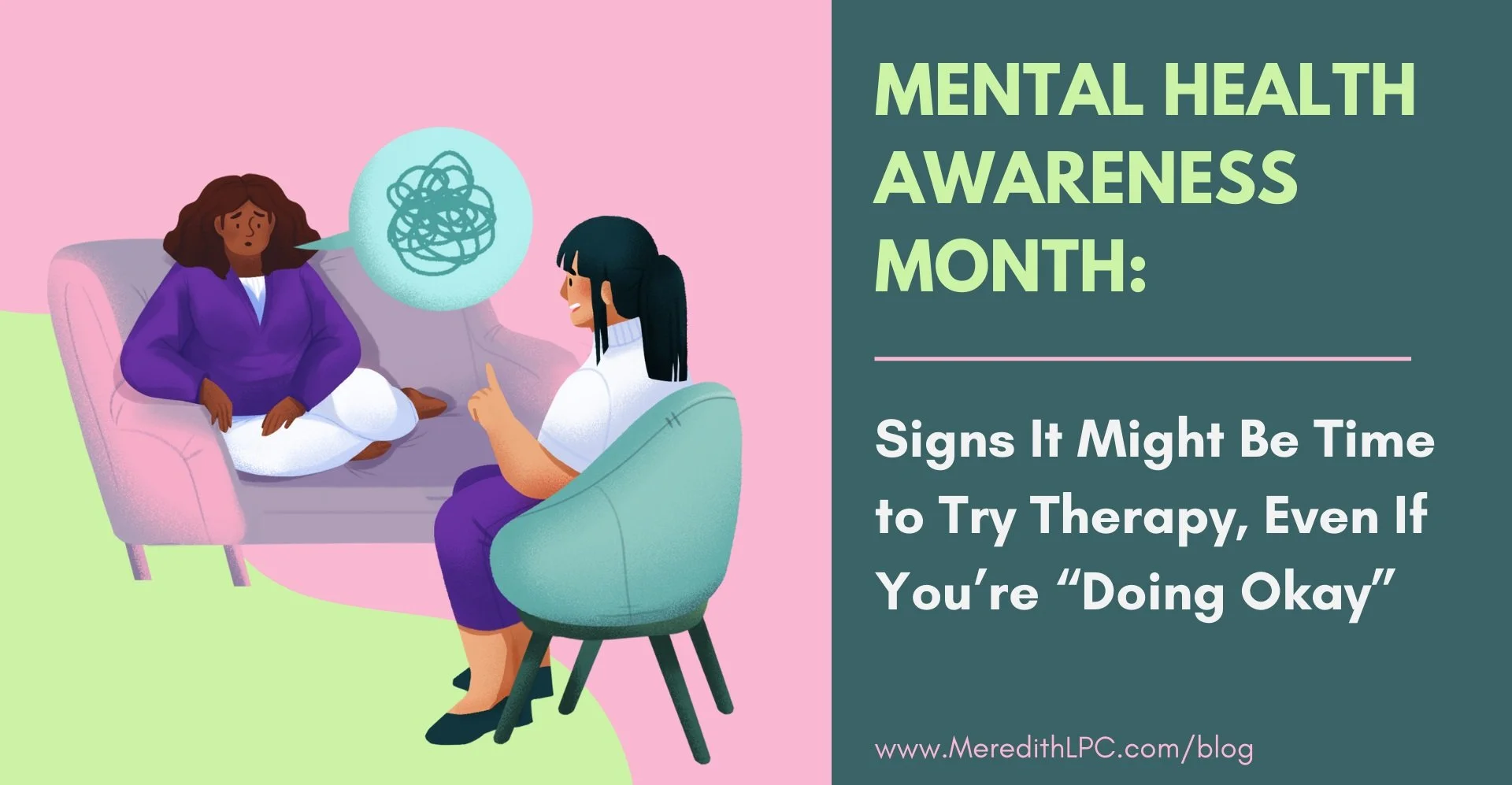Why Pride Month Matters for Mental Health and Affirming Therapy
Every June, communities around the world celebrate Pride Month—a time to honor the LGBTQ+ community, reflect on its history, and advocate for equality. But Pride is about more than parades and rainbows. It’s also a time to acknowledge the emotional weight many LGBTQ+ individuals carry and to highlight the need for affirming mental health care.
As a therapist, Pride Month is a reminder of the essential role therapy can play in the lives of LGBTQ+ adults. Whether someone is navigating identity, recovering from trauma, or simply seeking a safe space to feel seen, affirming therapy can make all the difference.
The Mental Health Impact of Being LGBTQ+
Research consistently shows that LGBTQ+ individuals experience higher rates of anxiety, depression, and trauma than their heterosexual and cisgender peers. This isn’t because being LGBTQ+ is a mental health issue—it’s not. The distress comes from living in a world where identity is often invalidated, misunderstood, or targeted.
Common stressors include:
Fear of rejection or discrimination
Lack of family support
Internalized shame or homophobia
Religious trauma
Microaggressions in daily life
Limited access to affirming mental health care
Pride Month shines a light on these realities and helps bring visibility to the healing work that therapy can support.
Why Affirming Therapy Matters
Too often, LGBTQ+ adults seek therapy only to find that their provider isn’t informed, sensitive, or inclusive. Some may feel the need to educate their therapist, or worse, shrink themselves to feel safe.
Affirming therapy is more than “tolerance”—it’s about actively honoring and validating a person’s gender identity, sexual orientation, and lived experiences. In affirming therapy:
Your identity is never up for debate
Your pronouns are respected
Your relationships and family structures are understood without explanation
Cultural and systemic factors impacting your mental health are acknowledged
You don’t have to edit yourself to be accepted
Affirming therapists create emotionally safe environments where clients can do deep work, whether that involves healing from trauma, managing anxiety, setting boundaries, or rediscovering joy.
Pride Month and the Power of Visibility
Pride is powerful because it invites people to show up as they are—and be celebrated. For many LGBTQ+ adults, that kind of visibility was not available growing up. Shame, secrecy, and survival often took priority.
Therapy can offer a space where clients unlearn old beliefs and reclaim who they are. And during Pride Month, we see that work reflected on a broader cultural stage. When individuals feel seen, supported, and safe, their mental health improves.
As a therapist and ally, I believe that Pride Month is a call to action: to listen more deeply, advocate more fiercely, and hold space more intentionally for those in the LGBTQ+ community.
How Therapy Can Help
If you’re LGBTQ+ and considering therapy, know this: You don’t have to be in crisis to benefit. Therapy can support you in:
Building healthy relationships
Processing past experiences
Exploring your identity
Setting boundaries
Increasing self-compassion
Managing anxiety or depression
Finding your voice
Affirming therapy helps you feel grounded in your truth, not burdened by it.
Looking for an LGBTQ-Affirming Therapist?
If you’re seeking an affirming therapist who understands the unique challenges LGBTQ+ adults face, I’d be honored to support you. Therapy should be a place where you can bring your full self—without fear, shame, or judgment. Let’s work together to help you feel empowered, understood, and whole.
Related Article: Healing Religious Trauma in the LGBTQ+ Community


